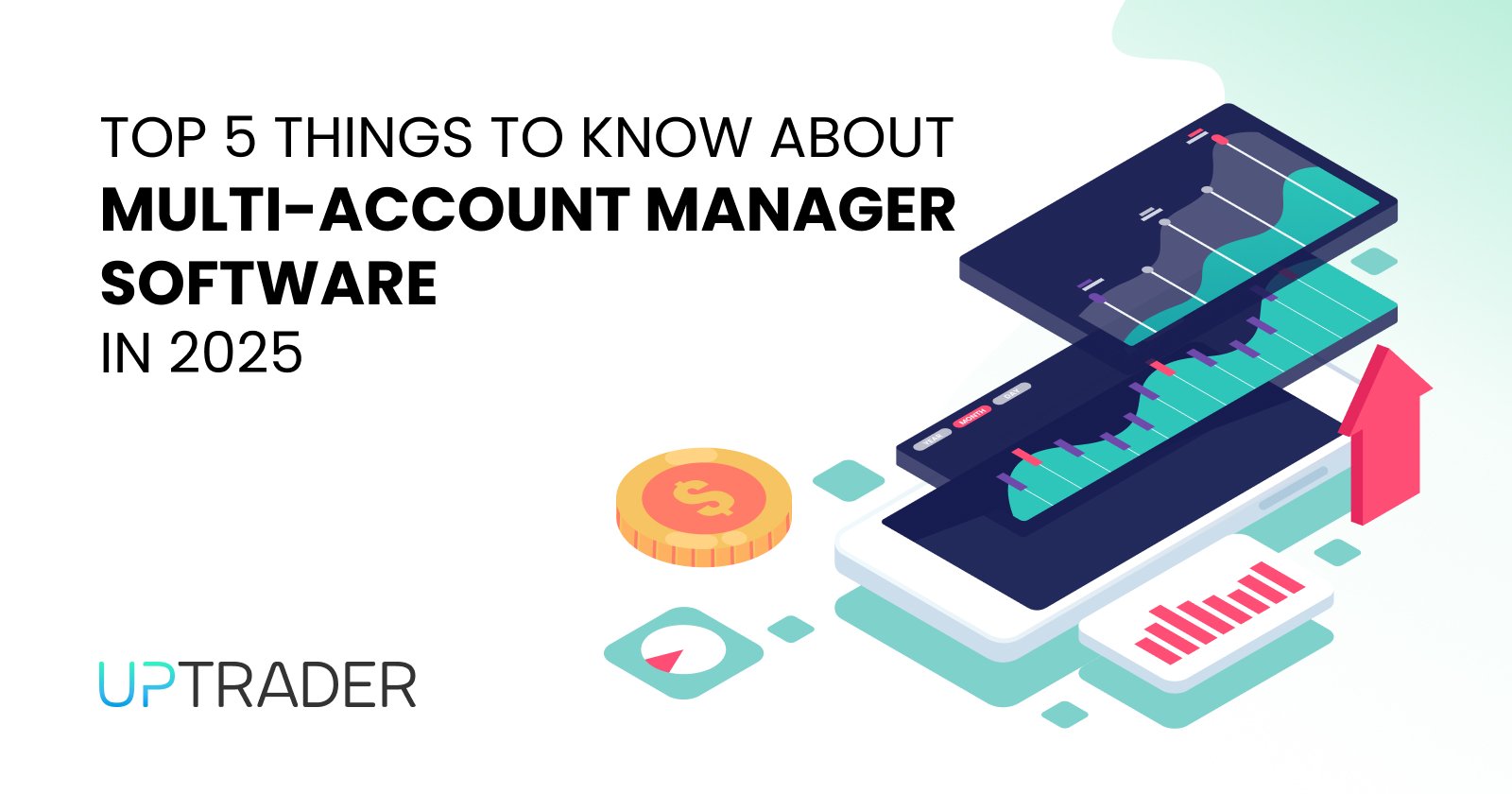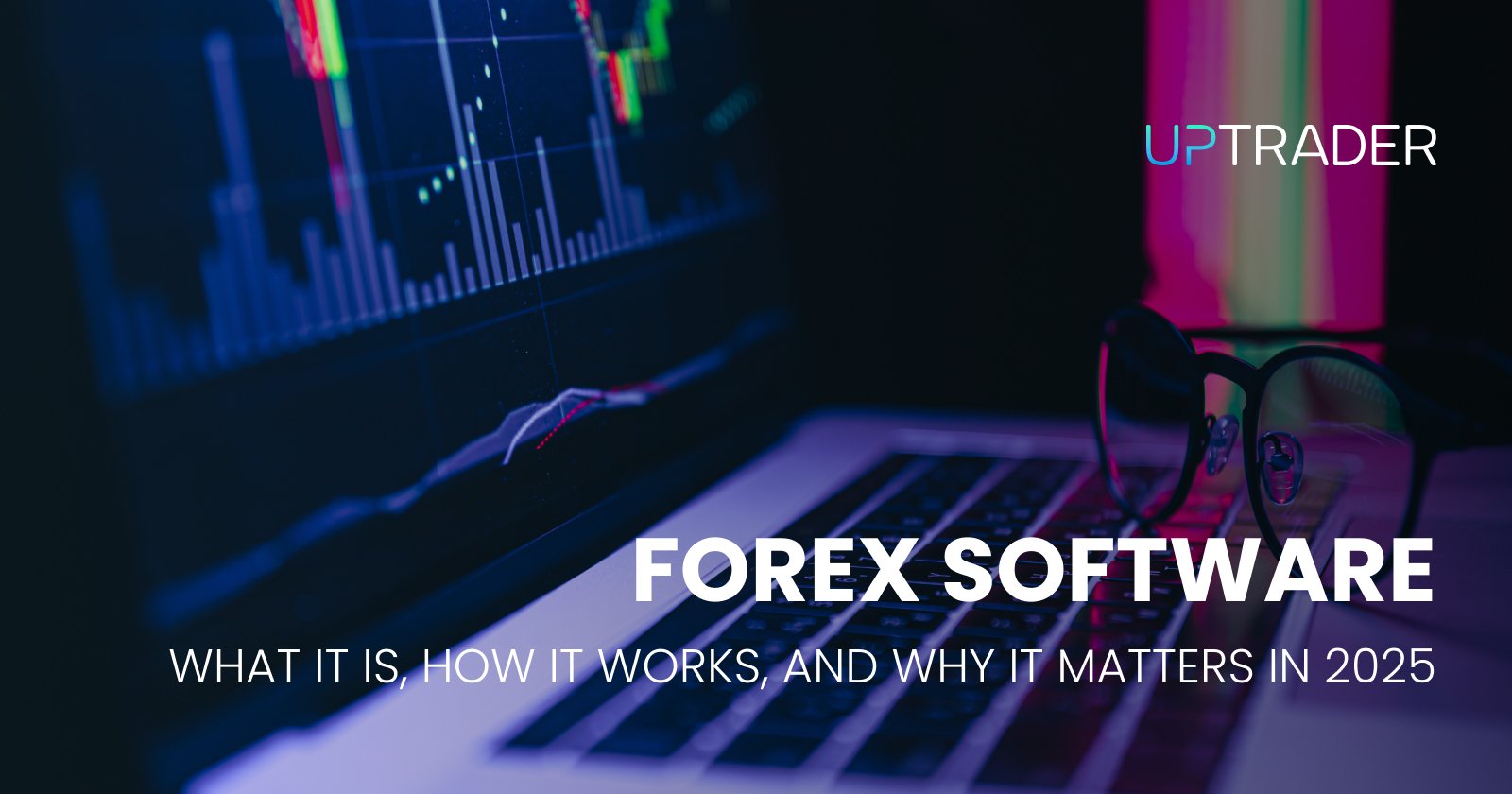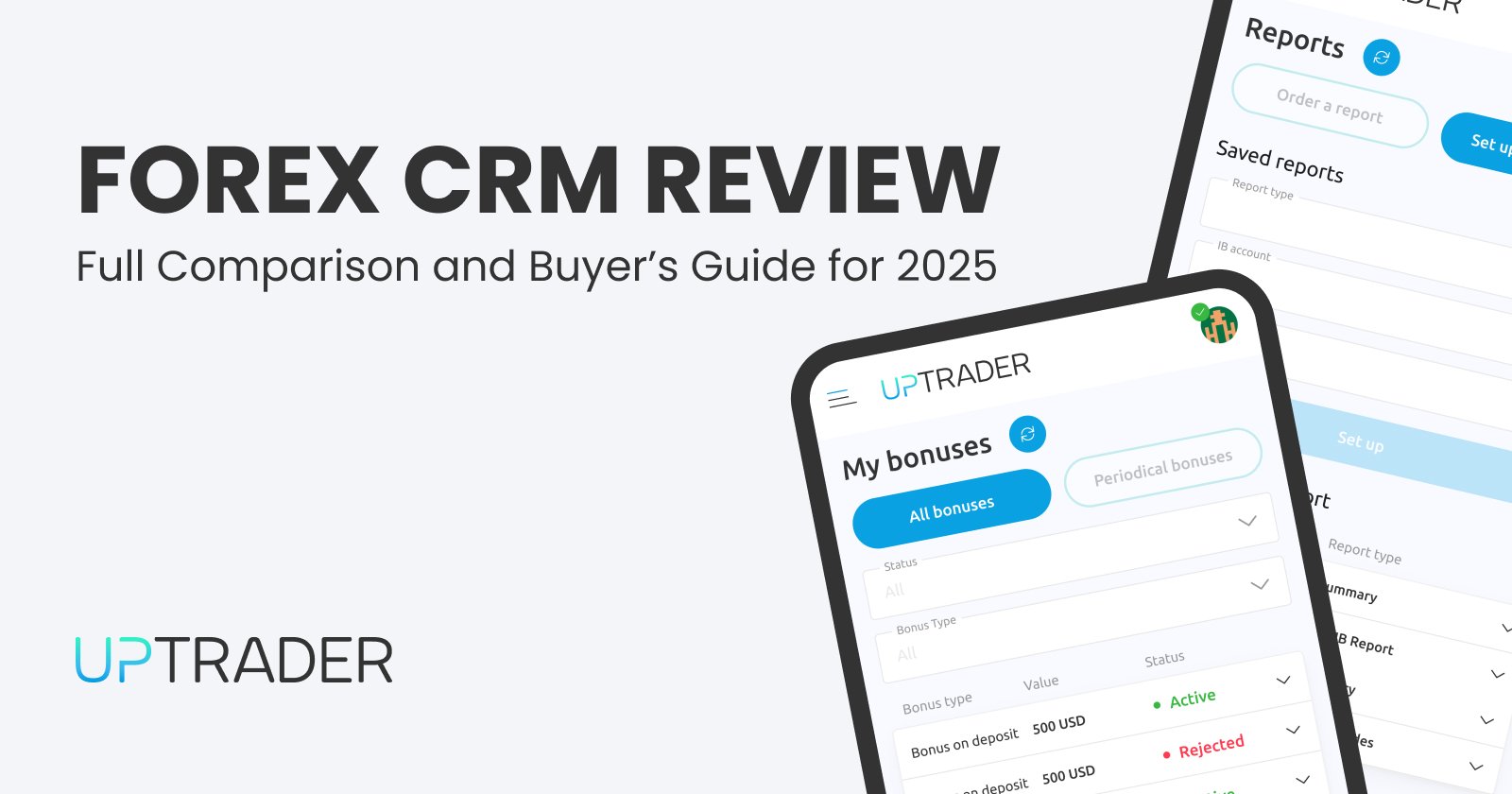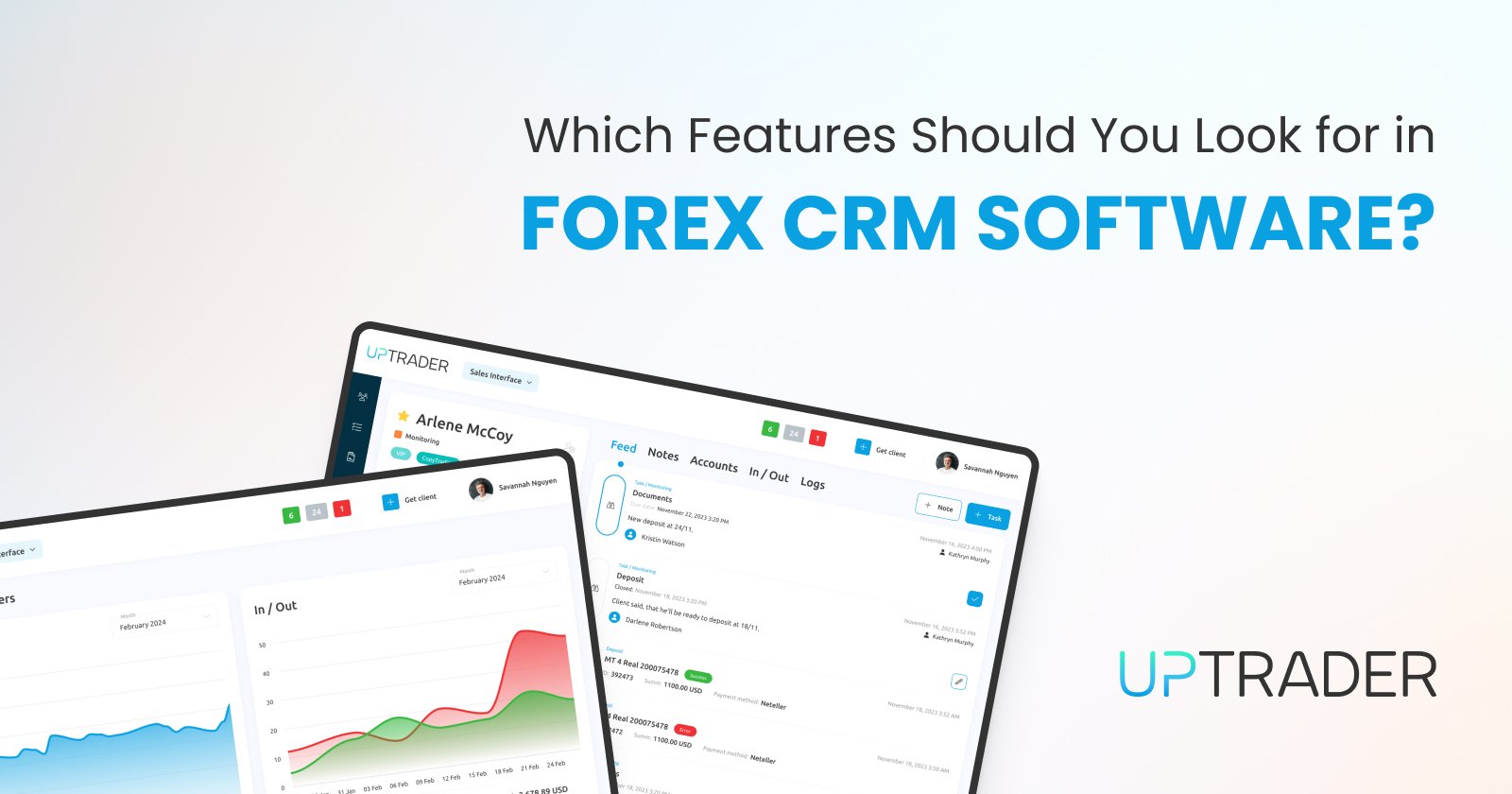
Top 5 Things to Know About Multi-Account Manager Software in 2025
For specialist, multi account manager software that operate systematically, managing dozens or even hundreds of accounts concurrently for clients feels like balancing spinning plates - it certainly requires precision, attention, and finesse to avoid calamitous failure. By 2025, MAM software will have further matured, serving as a reliable asset for professional money managers by offering enhanced automation, stronger security features, and easier compliance. In this case, the professional manager is equipped with additional MAM opportunities and needs these five vital pointers to stay abreast of trends
Multi-Account Manager Software in 2025
1. Seamless AI-Driven Trade Allocation
Gone is the era when traders relied heavily on copy-paste styles for allotting trades across accounts — today's MAM platforms utilize AI algorithms that evaluate risk, performance benchmarks, and client profiles for precise and automatic trade allocation across accounts.
- Incremental Lot Calibration: Automatic lot sizing through AI offers accuracy by scaling to the account's equity, current margin use, and past volatility.
- Automated Exposure Management: Post rapid response event-sensitive poses tailoring, predefined level reallocations enable instant exposure pruning or allocation across all monitored accounts with zero frantic manual intervention.
- Performance Optimization: Some cutting-edge MAM suites use machine‑learning models to predict which order types (market, limit, or stop) will likely be filled most efficiently under current liquidity conditions, shaving off slippage that can add up across hundreds of trades.
Why it matters: When milliseconds count and clients demand razor‑sharp execution, automated intelligence removes human hesitation and repetition, letting you focus on strategy rather than spreadsheets.
2. Ironclad Security and Compliance Controls
In an era of escalating cyberthreats and tighter regulatory scrutiny, your MAM solution must double as a fortress. By 2025, leading providers will offer built‑in compliance engines and military‑grade encryption that safeguard both trade data and client information.
- Role-Based Access Management: Grant analysts view‑only rights, let senior traders place orders, and reserve full administrative control for compliance officers — with every click and keystroke logged for auditing.
- End‑to‑End Encryption: All communications — whether instructions from your desk to the broker or between your team — are wrapped in AES‑256 or better, ensuring that intercepted packets are as useful as crumpled paper.
- Automated Compliance Checks: Know your regulatory obligations? Great. Your MAM’s compliance module enforces them automatically, blocking trades that breach leverage limits, position size caps, or client‑specific rules, then generating exception reports for review.
Why it matters: When the next cybersecurity breach or regulatory audit looms, you’ll sleep easier knowing your MAM has your back, protecting your reputation and your bottom line.
3. Unified Dashboard and Mobile Oversight
If your current workflow demands half a dozen apps just to monitor positions, meet clients, and sign off on trades, you’re a walking inefficiency. Modern MAM platforms consolidate everything into a single, cloud‑based dashboard that’s just as powerful on your phone or tablet as it is on a desktop.
- Customizable Widgets: Drag and drop components like P&L trackers, margin heat maps, and pending orders into a layout that matches your personal workflow. No coding required.
- Push‑Notification Alerts: Set triggers for drawdown thresholds, margin calls, or strategy‑specific signals — then get notified via push, SMS, or even secure chat integrations when they occur.
- Mobile Order Entry & Approval: Need to greenlight a new strategy allocation at 2 a.m.? Simply open the app, review the trade preview, and tap “Approve.” The order is distributed instantly, just as if you were at your desk.
Why it matters: When you’re constantly on the move — on calls with new prospects, attending conferences, or grabbing coffee between meetings — you shouldn’t be tethered to a trading terminal. Flexibility translates directly into faster response times and happier clients.
4. Modular Pricing and Scalable Architecture
For any business, cost-effective strategies are vital, whether you manage 5 accounts or 500. Gone are the days of uniform licensing fees; now, businesses can take advantage of modular, usage-based pricing that demonstrates scalability.
- Pay-Per-Seat Licensing: Many providers now charge per active user and on a per-managed-account basis. This enables companies to accurately gauge expenses and provides flexibility to improve cash flow.
- Feature-On-Demand: Social trading modules or deep analytics add-ons aren’t mandatory. You can subscribe only to the components you actually use and disable them when focus shifts.
- Cloud-Native Scaling: New MAM solutions hosted on elastic cloud platforms that automatically allocate additional compute and storage resources at busy periods and scale back when things are quiet make dealing with servers and IT for additional compute power and storage obsolete.
Why it matters: Enhanced technology requirements accompany the expansion of your client roster and asset base. With the unused capacity guarantee from a cloud-ready Master Account Manager (MAM), expansion becomes seamless, predictable, and budget-friendly.
5. Advanced Analytics for Performance and Risk
By 2025, the paradigm around data will drastically evolve. Beyond equity curves, best-in-class MAM platforms feature advanced multidimensional analytic dashboards which decompose performance, help risk mitigation, and assist in strategy refinement down to the most precise level.
- Strategy Attribution Reports: Disaggregate returns based on instrument, strategy, and even time of day, revealing the tactics that truly add value and those that simply add noise.
- Real‑Time Risk Heatmaps: Portfolio exposures across currency pairs, asset classes, or other risk factors are visualized and color-coded to indicate potential overconcentration, identifying troublesome areas before they escalate.
- Backtesting & Stress Testing: Hypothetical scenarios — such as sudden Fed announcements or flash‑crash events — can be run against historical or synthetic data to evaluate performance for different allocation strategies, allowing adjustments within the MAM interface.
Why it matters: Transparency requires action, and raw trade data will not suffice when clients demand it. Competitive edge hinges on powerful intuition based on data, and trust built on transparency.
Wrapping Up: Choosing the Right MAM in 2025
Final suggestions and observations contemplating these five pillars tailored to your firm’s needs: AI-driven allocation, advanced security, deep analytics, unified access, and scalable pricing.
As of 2025, MAM software will not just be optional. It will form the backbone of modern asset management. Acquire a complete solution with the five requirements in the first paragraph above — and you’ll effortlessly delight clients, improve performance, and stay ahead in this high-stakes industry.
If you want to try UpTrader Invest with amazing functionalities such as PAMM, MAM, Money Management, and much more, then talk to a consultant on our site today to help you set up your software to your needs!









